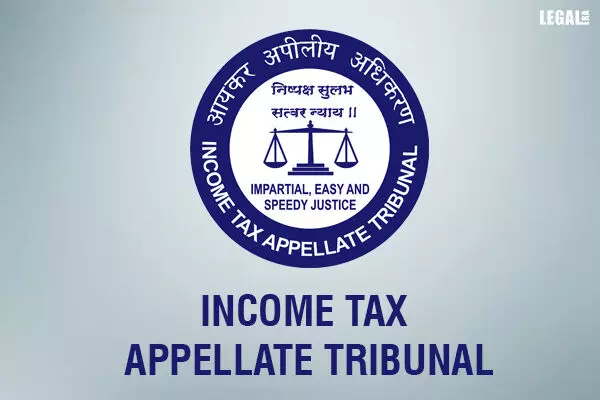- Home
- News
- Articles+
- Aerospace
- Agriculture
- Alternate Dispute Resolution
- Banking and Finance
- Bankruptcy
- Book Review
- Bribery & Corruption
- Commercial Litigation
- Competition Law
- Conference Reports
- Consumer Products
- Contract
- Corporate Governance
- Corporate Law
- Covid-19
- Cryptocurrency
- Cybersecurity
- Data Protection
- Defence
- Digital Economy
- E-commerce
- Employment Law
- Energy and Natural Resources
- Entertainment and Sports Law
- Environmental Law
- FDI
- Food and Beverage
- Health Care
- IBC Diaries
- Insurance Law
- Intellectual Property
- International Law
- Know the Law
- Labour Laws
- Litigation
- Litigation Funding
- Manufacturing
- Mergers & Acquisitions
- NFTs
- Privacy
- Private Equity
- Project Finance
- Real Estate
- Risk and Compliance
- Technology Media and Telecom
- Tributes
- Zoom In
- Take On Board
- In Focus
- Law & Policy and Regulation
- IP & Tech Era
- Viewpoint
- Arbitration & Mediation
- Tax
- Student Corner
- AI
- ESG
- Gaming
- Inclusion & Diversity
- Law Firms
- In-House
- Rankings
- E-Magazine
- Legal Era TV
- Events
- News
- Articles
- Aerospace
- Agriculture
- Alternate Dispute Resolution
- Banking and Finance
- Bankruptcy
- Book Review
- Bribery & Corruption
- Commercial Litigation
- Competition Law
- Conference Reports
- Consumer Products
- Contract
- Corporate Governance
- Corporate Law
- Covid-19
- Cryptocurrency
- Cybersecurity
- Data Protection
- Defence
- Digital Economy
- E-commerce
- Employment Law
- Energy and Natural Resources
- Entertainment and Sports Law
- Environmental Law
- FDI
- Food and Beverage
- Health Care
- IBC Diaries
- Insurance Law
- Intellectual Property
- International Law
- Know the Law
- Labour Laws
- Litigation
- Litigation Funding
- Manufacturing
- Mergers & Acquisitions
- NFTs
- Privacy
- Private Equity
- Project Finance
- Real Estate
- Risk and Compliance
- Technology Media and Telecom
- Tributes
- Zoom In
- Take On Board
- In Focus
- Law & Policy and Regulation
- IP & Tech Era
- Viewpoint
- Arbitration & Mediation
- Tax
- Student Corner
- AI
- ESG
- Gaming
- Inclusion & Diversity
- Law Firms
- In-House
- Rankings
- E-Magazine
- Legal Era TV
- Events
ITAT: Absence of ‘Dissolution Clause’ Alone Cannot Justify Denial of Registration under Income Tax Act

ITAT: Absence of ‘Dissolution Clause’ Alone Cannot Justify Denial of Registration under Income Tax Act
The Commissioner of Income Tax (Exemptions) had turned down the assessee due to the lack of requirement in its trust deed
The Delhi bench of the Income Tax Appellate Tribunal (ITAT) has provided relief to the assessee, stating that the absence of a dissolution clause cannot be the sole ground for denying registration under Section 12AA of the Income Tax Act.
The Commissioner of Income Tax (Exemptions) denied registration to Roop VK Jain Foundation, the assessee, based on the absence of a dissolution clause in its trust deed.
The assessee argued that the denial was unjust, arbitrary, and contrary to the provisions of the law, as the lack of a dissolution clause should not be a mandatory requirement.
The Coram of Chandra Mohan Garg (Judicial Member) and Dr. B.R.R. Kumar (Accountant Member) noted that the absence of a dissolution clause in a trust deed does not hinder the functioning of the statute. However, the trust can include a dissolution clause in its deed and provide a copy to CIT(E) for verification. Still, unless there are other allegations about the trust's charitable objectives and activities, the lack of a dissolution clause should not be a reason to deny the registration.
The bench highlighted that CIT(E) did not make any adverse comments or conclusions regarding the assessee's charitable objectives or the authenticity of its activities.
Thus, the tribunal dismissed CIT(E)'s rejection order as unsustainable. It directed the CIT(E) to grant registration to the assessee under Section 12AA of the Act.
In addition, the bench directed the assessee to amend its trust deed by incorporating a dissolution clause. He was told to submit a copy of the amended trust deed to the CIT(E), clarifying the position on the dissolution of the trust and ensuring compliance with the registration requirements.



